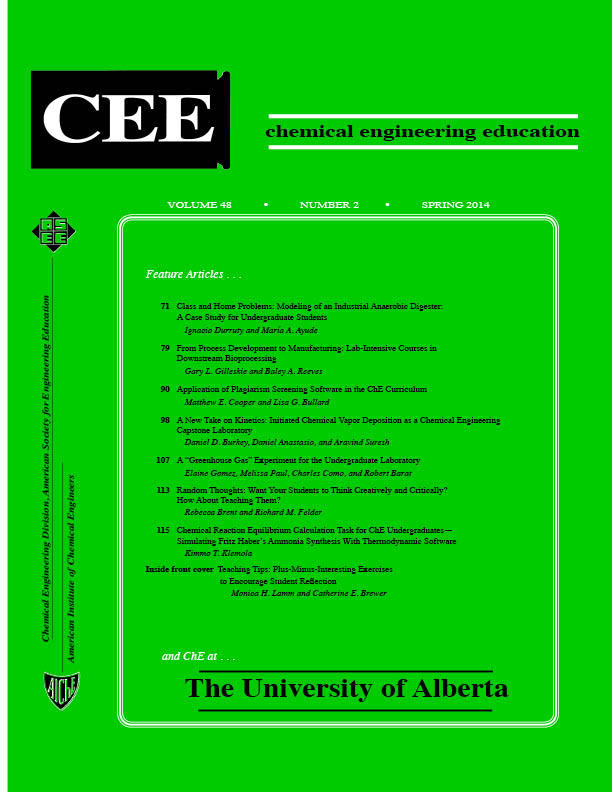Application of Plagiarism Screening Software in the Chemical Engineering Curriculum
Abstract
Plagiarism is an area of increasing concern for written ChE assignments, such as laboratory and design reports, due to ease of access to text and other materials via the internet. This study examines the application of plagiarism screening software to four courses in a university chemical engineering curriculum. The effectiveness of plagiarism screening software and student views on instructor use of the software are examined. Best practices for instructors using plagiarism screening software are suggested.


